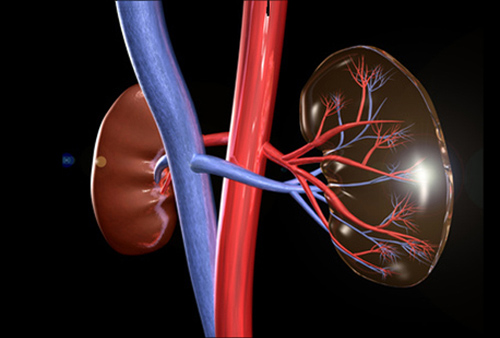Gilead Sciences will partner with Goldfinch Bio to discover, develop, and commercialize new therapeutics for diabetic kidney disease (DKD) and orphan kidney diseases, the companies said today, through a collaboration that could generate more than $2 billion for the three-year-old Cambridge, MA, startup.
The multi-year collaboration will give Gilead exclusive options to license worldwide rights to therapies aimed toward targets emerging from Goldfinch’s proprietary Kidney Genome Atlas™ (KGA), a registry of patients with kidney diseases that integrates genomic, transcriptomic, and proteomic data with patient clinical profiles.
Goldfinch has also agreed to apply its biology platform of human induced pluripotent stem cell-derived kidney cells and kidney organoids to validate targets and support discovery and development of products to which Gilead will have exclusive option rights, the companies added.
Goldfinch plans to expand the scope of the KGA beyond orphan kidney diseases to include DKD, through sequencing the DNA of a large cohort of diabetic patients with and without kidney disease.
“Goldfinch has established unique genetic and biology platforms that will allow for the identification and validation of novel targets for kidney disease and for the discovery and development of novel compounds,” John McHutchison, AO, MD, CSO and head of research and development at Gilead Sciences, said in a statement. “We look forward to partnering with our research collaborators at Goldfinch, as we seek to advance novel treatment options for people living with DKD and other serious kidney diseases.”
In addition to target identification and validation, Goldfinch will lead discovery and development activities before Gilead exercises exclusive option rights—at which point Gilead will oversee development and commercialization of optioned products.
Goldfinch will retain the option to lead development and co-promote optioned products directed to specific kidney disease targets.
‘Significant unmet need’
“This partnership will leverage Goldfinch’s KGA platform to identify new therapeutic targets and Gilead’s proven track record of efficiently advancing life-saving therapies for patients,” added Goldfinch’s president and CEO Tony Johnson, MD. “There is significant unmet need to improve health outcomes for patients with kidney diseases.”
Gilead has agreed to pay Goldfinch $55 million upfront, including a $5 million equity investment, as well as an additional $54 million to support the development of the KGA platform for DKD.
Gilead also agreed to pay Goldfinch up to $1.95 billion tied to achieving research, development, regulatory, and commercial milestones for the first five collaboration programs.
Goldfinch is also eligible for tiered royalties on sales of potential products developed through the collaboration—and retains the option to equally share in U.S. profits for certain optioned products in certain pre-defined kidney indications.
Gilead and Goldfinch said they agreed to share development costs for “profit-share” products among the two parties “in a manner commensurate with product rights.”
Lead programs excluded
Not included within the collaboration with Gilead are Goldfinch’s lead development program GFB-887 and its next-most-advanced program GFB-024, for which Goldfinch will retain all rights.
Goldfinch announced GFB-887, a selective, small molecule inhibitor of transient receptor potential canonical 5 (TRPC5), as its lead development candidate last year.
At the American Society of Nephrology (ASN) Kidney Week 2018 Conference, held October 23–28 in San Diego, the company showed the potential of GFB-887 as a treatment of podocyte injury and proteinuria associated with focal segmental glomerulosclerosis (FSGS), based on encouraging preclinical data in multiple models of kidney disease associated with proteinuria.
Last month at the International Society of Nephrology (ISN) World Congress 2019, held April 12–15 in Melbourne, Australia, Goldfinch presented additional preclinical data showing that GFB-887 provided protection against podocyte injury and proteinuria in models of FSGS treatment-resistant minimal change disease (TR-MCD) and diabetic nephropathy.
GFB-887 is in IND-enabling phase, while GFB-024—also indicated for FSGS, as well as for diabetic nephropathy—is in the discovery phase.
Gilead announced its collaboration with Goldfinch a week after announcing first-quarter 2019 results. Gilead finished Q1 with $1.975 billion in net income, up 28% from $1.538 billion a year earlier, on revenue that rose 3.8% to $5.281 billion from $5.088 billion in the first three months of 2018.


